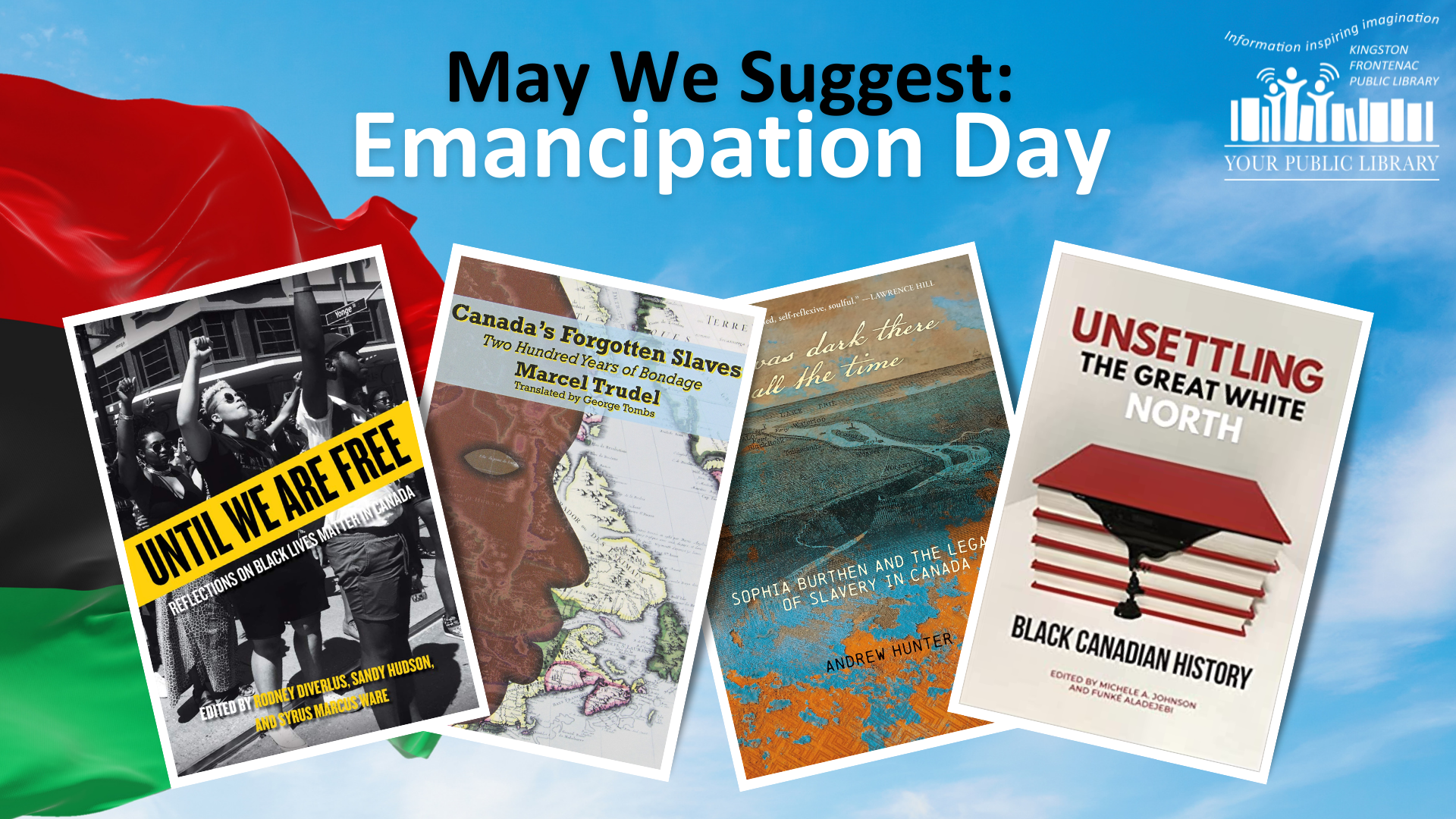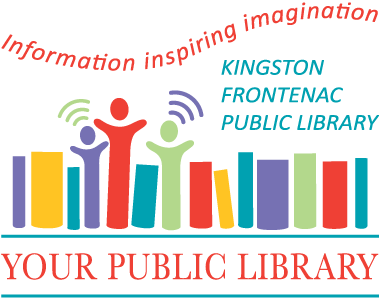
Many people point to Canada as a haven for people escaping slavery via the Underground Railroad, but slavery didn't stop at the border. Canada has a terrible history of enslaving Indigenous and African peoples — a history we all need to know and never forget. Emancipation Day commemorates the abolition of slavery across the British Empire while encouraging us to fight anti-Black racism and discrimination and to celebrate the strength and perseverance of Black communities in Canada.
These books offer valuable insight. Don't miss the national and local facts in the descriptions, contributed by Judith Brown.
Enslaved People In Canada by Julie Kentner
Discusses the history of slavery in North America, the lives of enslaved Indigenous and Black people, changing attitudes toward slavery in Canada and the law that made it illegal to enslave people. Ages 9-11.
Did you know? Kingston was one of the terminus points of the Underground Railroad.
Famous Black Canadians by Ramona Heikel
This book explores the life and accomplishments of Black Canadians from Canada's earliest days to the present, exploring the struggles that many early settlers faced, and the continuing struggle for equal treatment. Ages 9-11.
Did you know? The first Black student at Queen’s University and perhaps in all of Canada was Robert Sutherland (of Jamaican and Scottish ancestry). He is also recognized as the first Black lawyer in Canada. Robert Sutherland bequeathed his entire fortune of $12,000 to Queen’s upon his death in 1878. This saved the university from either closing or joining the University of Toronto.
It Was Dark There All The Time: Sophia Burthen and The Legacy Of Slavery in Canada by Andrew Hunter
Tells the story of Sophia Burthen, an enslaved woman once owned by Indigenous leader Joseph Brant, then sold to Samuel Hatt in Ancaster, Ontario during the 1800s.
Did you know there were segregated schools in Canada? These schools began in the early 19th century. It was with the passing of the 1977 Acadian Human Rights Act that these practices began to change. The last segregated school in Canada closed in 1983, just outside Halifax, Nova Scotia.
Unsettling The Great White North: Black Canadian History by Funké Aladejebi and Michele A. Johnson
Unsettling the Great White North highlights the diverse experiences of persons of African descent within the chronicles of Canada's past. The book considers histories and theoretical framings within the disciplines of history, sociology, law, and cultural and gender studies to chart the mechanisms of exclusion and marginalization in "multicultural" Canada.
Did you know? In the 1840s, James and Maria Elder were an early Black couple who ran a successful business in Kingston. They ran a saloon specializing in oysters, fruits, confectionery and fine liqueurs and wines. After moving a few times due to fires, their final spot was in what is now the Prince George Hotel.
Talking About Freedom: Celebrating Emancipation Day In Canada by Natasha L. Henry
On August 1, 1834, 800,000 enslaved Africans in the British colonies, including Canada, were declared free. The story of Emancipation Day is a little-known part of Canadian history despite its significance in the story of Canada. Talking About Freedom closes this gap by exploring both the background to August 1 commemorations across Canada and the importance of these long-established annual celebrations.
Did you know? Canada officially declared Emancipation Day on March 24, 2021, designating August 1 as the date to be remembered. The date recognizes August 1, 1834, when slavery was abolished in the British colonies.
Canada's Forgotten Slaves: Two Centuries Of Bondage by Marcel Trudel and Micheline D'Allaire
A ground-breaking study of slavery, providing a human face to the over 4,000 Indigenous and Black slaves who were bought, sold and exploited in colonial Canada. This book is based on unpublished archival records of the 17th, 18th, and 19th centuries.
Did you know Canada has a 200-year history of slavery? The first slave brought to Canada was a seven-year-old boy, Olivier LeJeune, who arrived around 1630.
Blacks In Canada: A History by Robin W. Winks
A history of Black people in Canada, from the introduction of slavery in 1628 to the first wave of Caribbean immigration in the 1950s and 1960s.
Did you know? The earliest Black entrepreneur documented in Kingston was William Johnson in 1826. He was a barber and so were his two sons. The younger, James, became known as the barber of Prime Minister John A. MacDonald. Johnson built a two-storey stone home at 49 Earl Street.
Until We Are Free: Reflections On Black Lives Matter In Canada by Rodney Diverlus, Sandy Hudson, and Syrus Marcus Ware
A collection of writings on how the Black Lives Matter movement spread into Canada, and on the issues confronting the Black community.
The Hanging Of Angélique: The Untold Story Of Canadian Slavery And The Burning Of Old Montréal by Afua Cooper
Montréal burned into the night on April 10, 1734. A slave named Marie-Joseph Angélique, who was 29 years old, was apprehended, put on trial, and found guilty of lighting the fire that destroyed 46 buildings. Her accusers tortured her after the trial because they believed she had not acted alone and were enraged that she maintained her innocence. She confessed but named no accomplices. Cooper sheds new light on Canada's misunderstood or ignored history of silvery and disproves the prevalent belief that Canada was a haven at the end of the Underground Railroad.
Did you know? A Frenchman bought Marie Joseph Angélique, born in the early 1700s, and took her to his home in Montreal. She was accused of torching her master's house and much of what is now known as Old Montreal. Even though there was no credible evidence that she committed the crime, she was hanged and burned. In February 2012, a square in Montreal across from the City Hall was named in her honour.













